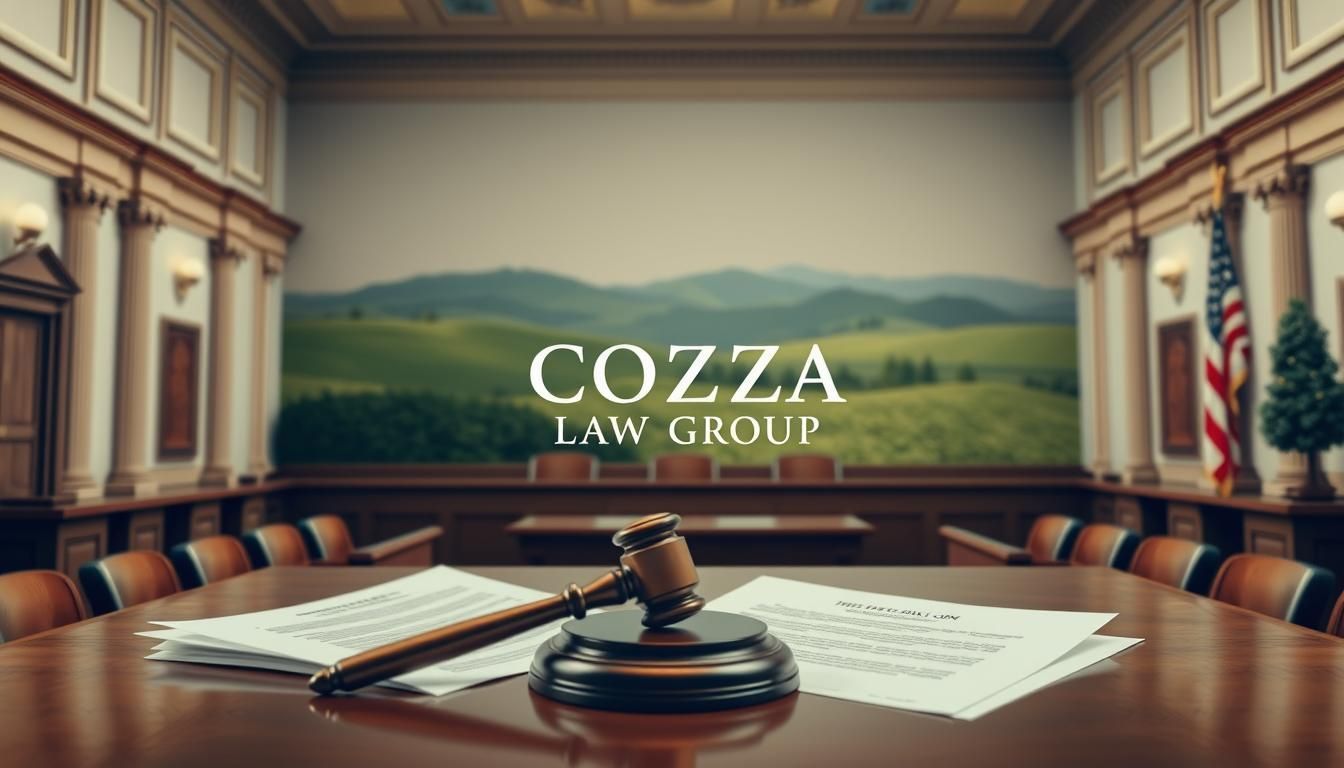Can You Inherit Parents' Debt in Pennsylvania?

Can You Inherit Parents' Debt in Pennsylvania?
Inheriting your parents' debt can be a tough topic to face. But it's key to know the legal side, especially in Pennsylvania. This article from Cozza Law Group PLLC looks into the state's filial responsibility law. It covers when kids might have to pay their parents' debts, exceptions, and how probate and bankruptcy affect it.
We aim to give you a full guide on dealing with this complex issue. Our goal is to help safeguard your family's financial well-being.
Key Takeaways
- Pennsylvania has a filial responsibility law that may require children to pay for their parents' debts in certain situations.
- Medical debt and certain other expenses can be inherited by family members, but there are exceptions to the law.
- The probate process and estate management can impact how debts are settled and what assets may be seized by creditors.
- Consulting with an estate planning attorney can help families navigate the complex issues surrounding parental debt inheritance.
- Proactive financial planning and understanding your rights can protect your inheritance from creditor claims.
Introduction to Inheriting Parental Debt
Many Americans face financial burdens, making inheriting parental debt a concern. As people age, they may have large debts like mortgages and medical bills. This can put children in a tough spot, dealing with their parents' debts.
The Uncomfortable Reality of Inheriting Debt
Inheriting debt can feel overwhelming. Debt inheritance laws in pennsylvania and parental debt responsibilities are complex. Heirs may not know their debt obligations of heirs or how much they owe. It's key to understand unpaid debts after death and how pennsylvania estate laws affect creditor claims on estates.
Understanding the Types of Debt Involved
- Medical bills: High medical costs, like hospital stays and surgeries, can be a big financial problem for the estate.
- Mortgage and loans: Heirs may have to pay off mortgages, vehicle loans, and personal loans.
- Credit card debt: Credit card balances and late payments can fall on the deceased's family.
It's important for heirs to understand debt inheritance laws in pennsylvania and their liability for deceased's debts. This helps them make smart choices and protect their finances.
Pennsylvania's Filial Responsibility Law
In Pennsylvania, we have a law called the "filial responsibility law." It makes adult children responsible for their parents' debt if the parent can't manage money. This law affects families a lot, so it's key to know when children might have to pay.
Scenarios When Children May Be Responsible
Under this law, adult children might have to cover their parents' medical bills and nursing home costs. This is if the parent can't pay for these things anymore. It also applies if the parent is widowed or has no living parent.
- Children can inherit medical debt and debts they cosigned for in Pennsylvania under this law.
- The law (23 Pa.C.S. § 4603(a)-(c)) says people with enough money must help an indigent person, even if they're a public charge.
- In Health Care & Retirement Corp. of America v. Pittas, a son had to pay $93,000 for his mother's nursing home care under this law.
There are exceptions to this law, which we'll look at next. Understanding Pennsylvania's filial responsibility law is tough. But knowing your rights and duties is vital to keep your finances safe.
Exceptions to the Filial Responsibility Law
There are two main exceptions to Pennsylvania's filial responsibility law. These exceptions can help children avoid paying their parents' debts. The law doesn't apply if a child can't afford to support their parents. It also doesn't apply if a parent abandoned their child for 10 years or more when the child was a minor.
In the 2012 case of Health Care & Retirement Corp. of America v. Pittas, John Pittas was found liable for his mother's nearly $93,000 nursing home bill. But, the law offers relief to children who can't pay their parents' debts.
The filial responsibility law also doesn't apply if a parent abandoned their child for 10 years or more during the child's childhood. This was shown in the Eori v. Eori case. In this case, multiple siblings were held responsible for their mother's support under the Pennsylvania statute.
Planning ahead, especially for those with low incomes, can help qualify for Medicaid. This can prevent issues with the filial responsibility law when nursing home or assisted living care is needed.
In summary, the two main exceptions to the filial responsibility law in Pennsylvania are:
- Children who lack the financial ability to support their indigent parents
- Parents who abandoned their children for 10 or more continuous years during the child's minority
Knowing these exceptions is key to understanding how to handle inherited parental debt in Pennsylvania.
can you inherit your parents debt in pennsylvania
Medical Debt as an Inherited Liability
In Pennsylvania, the filial responsibility law makes adult children responsible for their parents' unpaid medical bills. This means you might have to pay off your parents' medical expenses from your own money or inheritance. But, it's key to know the details and limits of this law.
Debts Children Are Not Responsible For
While children can inherit medical debt, they're not responsible for many other debts. This includes credit card bills, utility payments, and loans without a co-signer. In Pennsylvania, family members usually don't have to pay the debts of a deceased relative from their own money, as these debts are generally owed by and paid from the deceased person's estate.
Knowing which debts can and can't be passed on to heirs is vital. This knowledge helps protect your financial well-being and prevents unexpected costs during the probate process.
There are exceptions where individuals might have to pay a deceased person's debt. This includes if they cosigned the debt, are the deceased's spouse in a community property state, or didn't follow state probate laws. Some states also require spouses to pay certain debts.
Debt collectors must follow strict rules when trying to collect a deceased person's debt. You have protections against unfair practices under the Fair Debt Collection Practices Act (FDCPA). By understanding your rights and the limits of filial responsibility laws, you can handle inheriting debt confidently.
The Probate Process and Debt Settlement
When someone dies in Pennsylvania, their estate goes through probate court. This process lists the person's assets and debts. It also settles debts and gives what's left to the heirs. Knowing how probate works helps protect your inheritance from creditors.
Protecting Inheritance from Creditor Claims
In Pennsylvania, the probate court pays off debts before giving out inheritances. This follows the Pennsylvania Estates and Fiduciaries (PEF) Code. Creditors have 3-6 months to claim what's owed, so managing probate quickly is key.
To keep your inheritance safe, consider living trusts. They can keep some assets out of probate. Also, posting a notice to creditors can help them reveal any debts. This way, you can handle them quickly.
By understanding the pennsylvania probate process and using legal strategies, you can protect your inheritance from creditor claims on the insolvent estate debt. This ensures the deceased's debts are settled properly.
Conclusion
Inheriting debt from parents in Pennsylvania can be tough. But, knowing the laws and options helps families deal with it better. Working with experienced lawyers, like ours at Cozza Law Group PLLC, is key. We help create plans that lessen the financial load on loved ones and protect their inheritance.
This guide has covered important points about inherited debt in Pennsylvania. It talked about filial responsibility laws, debt that may not be forgiven at death, and the need for proactive legacy and debt planning. Knowing these helps people avoid leaving their loved ones with too much debt.
The question of can you inherit your parents debt in pennsylvania is complex. But, with the right help, families can overcome this challenge. By getting advice from legal and financial experts, we can make sure the transition is smooth. And we can protect the legacy we leave for our loved ones.




